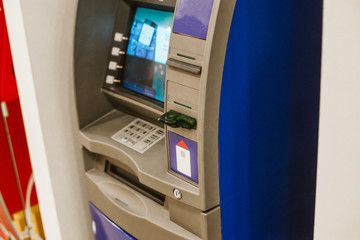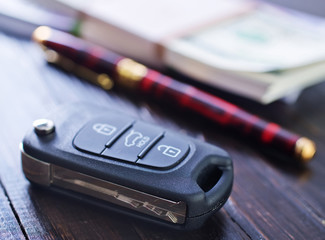

The Essential Guide to Loaner Cars: Everything You need To Know
When your car is out of commission due to repairs or maintenance, a loaner car can be a lifesaver. Loaner cars are temporary vehicles provided by a dealership or repair shop for customers whose cars are being worked on. These vehicles allow you to continue with your daily activities without interruption. Understanding how loaner cars work, what to expect, and the potential costs involved can help you make the most of this convenience.
In this guide, we’ll dive deep into the world of loaner cars, from what they are to the conditions under which you can get one. We’ll also address common questions about insurance, fees, and policies to give you a comprehensive overview.
What is a Loaner Car?
A loaner car is a temporary vehicle provided to a customer when their own car is being serviced. This service is most commonly offered by car dealerships, auto repair shops, and insurance companies. Loaner cars are designed to keep you mobile while your vehicle undergoes routine maintenance, warranty repairs, or accident-related fixes.
Loaner cars are often new or recent models from the dealership’s inventory, offering a high-quality and reliable driving experience. They differ from rental cars, which are typically rented from a separate company, and may be older models with higher mileage. Loaner cars, by contrast, are generally low-mileage, well-maintained vehicles that match the quality of the customer’s car.
The loaner car system offers a convenience that can save you time and stress. If you rely on your car for commuting to work, running errands, or other daily tasks, a loaner vehicle allows you to continue your routine while your primary car is being serviced.
How to Get a Loaner Car
The process of obtaining a loaner car can vary depending on the dealership, repair shop, or insurance policy. Generally, there are three main ways you may be eligible for a loaner car:
- Through the Dealership
If you’ve purchased a vehicle from a dealership and it requires repair under warranty, the dealership will often provide a loaner car free of charge. This service is typically included as part of the warranty agreement. If your car is not under warranty, some dealerships may still offer a loaner car for a fee or as a customer service benefit for repeat customers. - Through Your Insurance Policy
If your car has been damaged in an accident and you have rental car coverage in your auto insurance policy, your insurance provider may pay for a loaner or rental car. It’s essential to check the specifics of your policy to determine whether loaner car coverage is included and how much of the cost your insurance will cover. - Through the Repair Shop
Certain auto repair shops, particularly those specializing in high-end or luxury vehicles, may offer loaner cars to their customers while repairs are being performed. However, this is not a universal practice, and loaner car availability may depend on the shop’s resources.
In any case, loaner cars are generally available only while your vehicle is being serviced. Once the repairs are completed, you must return the loaner car to the dealership or repair shop.
Loaner Car Fees and Insurance Coverage
Loaner cars are often provided at no cost if your car is under warranty or covered by insurance. However, there are circumstances where you may have to pay a fee, especially if your vehicle is not covered by an extended warranty or you are using the loaner car for an extended period. Some dealerships or repair shops may charge a small daily fee for the loaner car to cover insurance, cleaning, and maintenance.
When it comes to insurance, loaner cars are typically covered by your existing auto insurance policy. However, it’s important to inform your insurance provider that you are using a loaner car to ensure that the coverage extends to the temporary vehicle. If you’re in an accident while driving a loaner car, your insurance may cover the damages, but you could still be responsible for deductibles or limits based on your policy. If your policy does not extend to loaner vehicles, the dealership or repair shop may provide you with their own insurance plan, although this may come with additional costs.
Always ask the dealership or repair shop for clarification on the loaner car’s insurance policy, and make sure you understand your responsibilities before driving away. Some dealerships may also require you to sign an agreement that covers things like mileage limits and fuel refills before you return the car.
Loaner Car vs. Rental Car
There are key differences between a loaner car and a rental car, even though both serve the purpose of keeping you mobile while your car is unavailable.
- Cost
Loaner cars are typically provided at no cost if your car is being serviced at the same dealership or repair shop. Rental cars, on the other hand, are usually paid for by the day, week, or month, depending on the length of the rental. If your insurance policy includes rental car coverage, the cost of a rental car may be covered up to a certain amount. - Availability
Loaner cars are often limited to dealership customers or warranty repairs. Rental cars, on the other hand, are available to anyone willing to pay the rental fee. This makes rental cars more accessible, but potentially more costly. - Vehicle Type
Loaner cars are usually newer models from the dealership’s current inventory, while rental cars are often older vehicles that have been driven by multiple customers. This means that loaner cars may offer a better driving experience, with more up-to-date features and lower mileage. - Duration of Use
Loaner cars are generally available only for the time it takes to complete your car’s repair. Rental cars, on the other hand, can be rented for any length of time, depending on your needs and budget.
What to Expect When Using a Loaner Car
When using a loaner car, there are a few things to keep in mind to ensure a smooth experience:
- Mileage Limits: Some dealerships place mileage limits on loaner cars. Exceeding these limits may result in additional fees.
- Fuel Policy: Most dealerships expect you to return the loaner car with the same level of fuel it had when you received it. Failure to do so may lead to a fuel charge.
- Condition of the Car: It’s important to treat the loaner car as you would your own vehicle. You are typically responsible for any damage to the car while it’s in your possession, and you may be charged for repairs if damage occurs.
- Return Time: Once your car is ready, you’ll need to return the loaner car promptly. Some dealerships may charge you for extended use of the loaner car if you delay its return.
Wrapping Up
Loaner cars provide an essential service for drivers whose vehicles are undergoing repairs. They offer convenience, peace of mind, and continuity in your day-to-day activities. Whether provided by a dealership, repair shop, or through your insurance, understanding the policies, fees, and insurance coverage related to loaner cars ensures that you make the most of this temporary solution. By knowing what to expect and how to navigate the loaner car process, you can avoid surprises and enjoy the benefits of driving a quality vehicle while your own car is being serviced.
Common FAQs About Loaner Cars
1. Is a loaner car free?
Loaner cars are often free if your car is under warranty or if you have insurance coverage for rental vehicles. However, there may be fees in cases where warranty coverage does not apply, or if the dealership charges for extended use.
2. Will my insurance cover a loaner car?
In most cases, your existing auto insurance policy will cover the loaner car, but it’s important to check with your insurance provider to confirm. If your policy does not cover loaner vehicles, the dealership or repair shop may offer temporary coverage.
3. How long can I keep a loaner car?
You can typically keep the loaner car for as long as your vehicle is being serviced. Once repairs are complete, you are expected to return the loaner car immediately. Some dealerships may charge extra for extended use.
4. Do I have to refill the fuel tank before returning a loaner car?
Yes, most dealerships require you to return the loaner car with the same amount of fuel it had when you received it. If you fail to do so, you may be charged for the missing fuel.
5. What happens if I get into an accident with a loaner car?
If you’re involved in an accident while driving a loaner car, your auto insurance policy will likely cover the damages. However, you may still be responsible for deductibles or coverage limits. Always check your insurance policy to understand what is covered.








